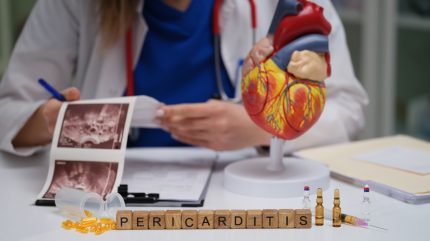
Northwestern University in Illinois, US, has enrolled the first subject in a Phase III trial of Cardiol Therapeutics’ drug candidate, CardiolRx, for preventing the recurrence of pericarditis.
The placebo-controlled, double-blind MAVERIC trial aims to evaluate the drug’s impact on preventing the condition in high-risk patients and support its regulatory approval.

Discover B2B Marketing That Performs
Combine business intelligence and editorial excellence to reach engaged professionals across 36 leading media platforms.
It is being initiated at the cardiovascular clinical research sites across the US, operating under the investigational new drug application authorised by the US Food and Drug Administration (FDA).
MAVERIC is structured to enrol a total of 110 subjects across nearly 20 clinical sites in Canada, Europe and the US.
The trial’s primary clinical objective is to evaluate the drug’s impact against the placebo on maintaining freedom from recurrent pericarditis at 24 weeks.
Additional clinical endpoints are time to a new pericarditis recurrence, changes in reported chest pain scores by the patients, and changes to the inflammatory marker C-reactive protein.

US Tariffs are shifting - will you react or anticipate?
Don’t let policy changes catch you off guard. Stay proactive with real-time data and expert analysis.
By GlobalDataThe trial comes after Cardiol Therapeutics published positive results from the Phase II MAvERIC-Pilot trial, which showed that subjects experienced a decrease in pericarditis inflammation and pain.
Cardiol Therapeutics CEO and president David Elsley said: “Initiation of the MAVERIC Phase III trial is an important milestone in our company’s efforts to provide a more accessible, non-immunosuppressive therapeutic option for thousands of pericarditis patients.
“Based on the strength and consistency of the data from our Phase II MAvERIC-Pilot study, we believe that CardiolRx can make a meaningful difference in the lives of pericarditis patients.”
Pericarditis is caused by a viral infection and causes inflammation of the pericardium, the membrane surrounding the heart.
Around 38,000 pericarditis patients in the US are estimated to experience at least one recurrence of the disease each year.
There is currently only one FDA-approved therapy for recurrent pericarditis, but this is said to be expensive and used primarily as a third-line intervention.





